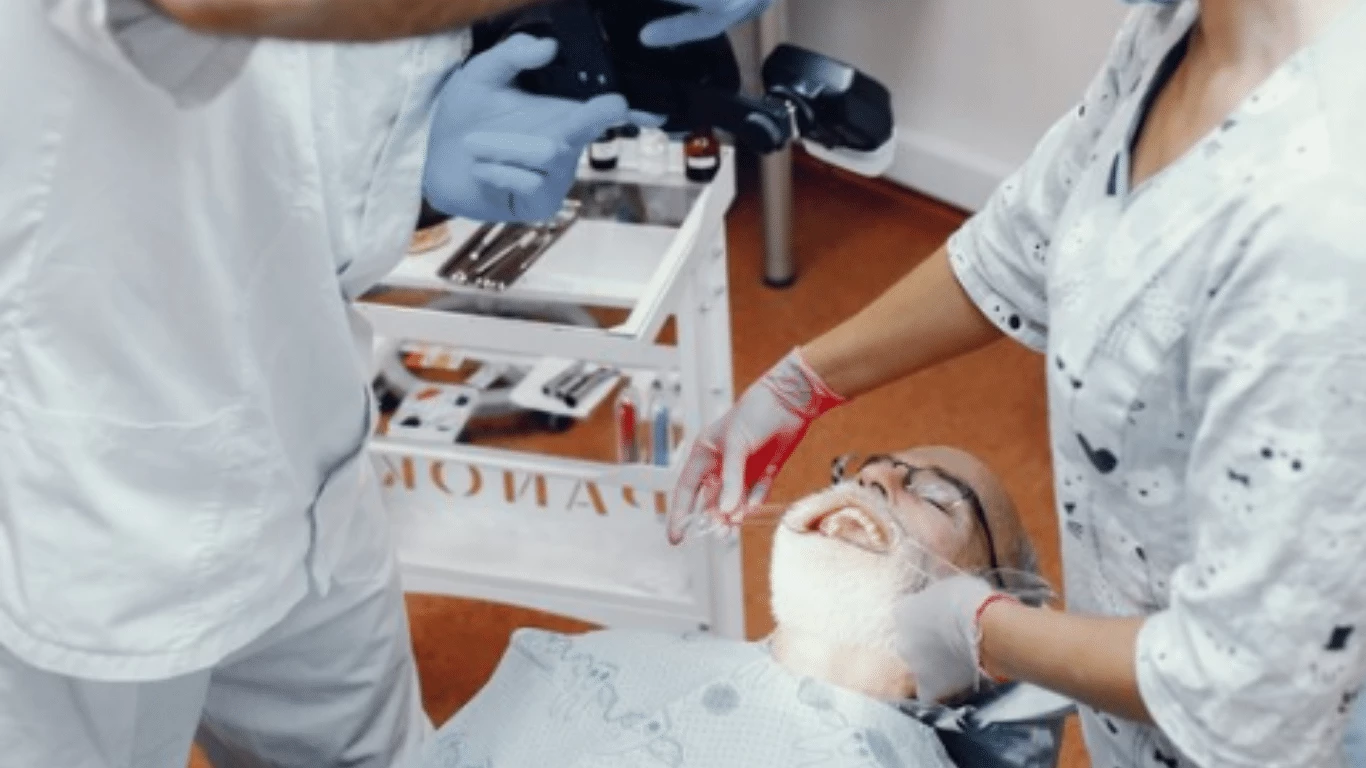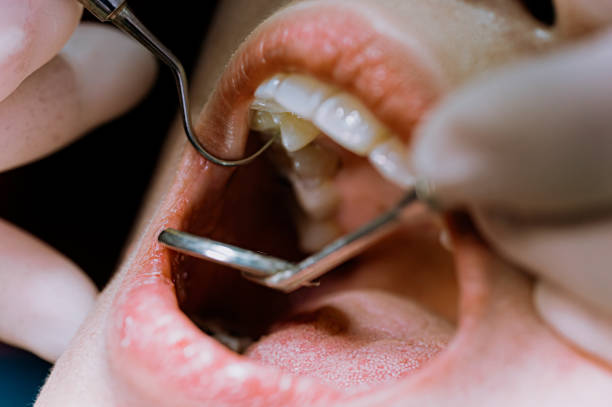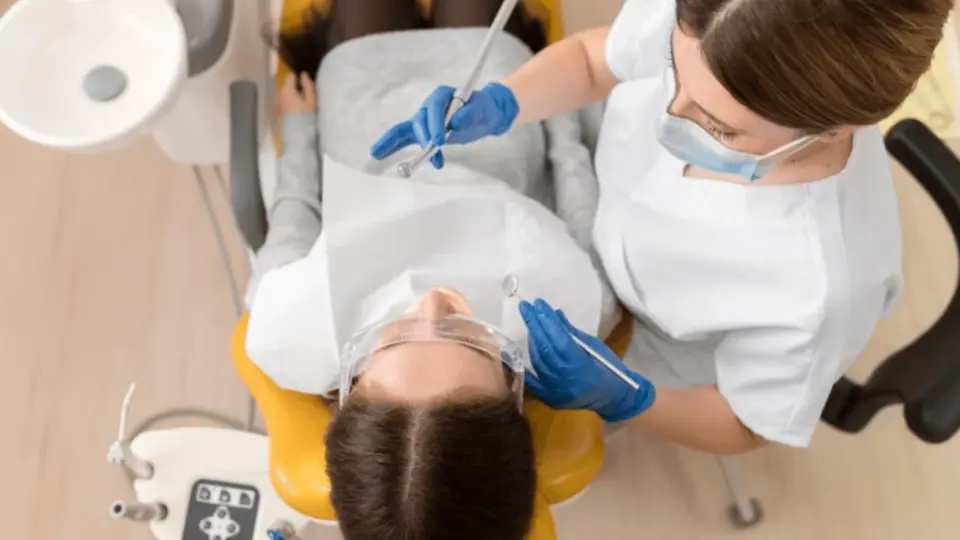The Impact of Sleep on Oral Health: A Nighttime Routine for a Healthy Smile

Did you know that your sleep habits can affect more than just your energy levels? Your oral health is closely tied to the quality of your rest and your nighttime routine. Poor sleep and inconsistent oral care can lead to issues like gum disease, bad breath, and even weakened enamel.
But here’s the good news—taking simple steps before bed can help keep your smile healthy and bright. From brushing and flossing to staying hydrated and avoiding late-night snacking, a mindful evening routine is key. Let’s dive into how your nightly habits can protect your teeth, gums, and overall well-being.
How does sleep deprivation affect gum health?
Sleep is crucial in maintaining good oral health, allowing the body to repair and regenerate tissues, including gums and teeth. During deep sleep, the body produces more saliva, which helps to neutralize acids in the mouth and prevent tooth decay.
Additionally, adequate sleep supports a healthy immune system, reducing the risk of gum disease and other oral infections. Conversely, poor sleep habits, such as sleep apnea or teeth grinding, can contribute to oral health problems like tooth wear, jaw pain, and an increased risk of gum disease.
Establishing a nighttime routine is essential for promoting restful sleep and oral health. Brushing your teeth thoroughly before bed, flossing, and using a fluoride rinse can help prevent plaque buildup and cavities overnight. It’s also important to avoid sugary snacks and drinks before bed, as they can contribute to tooth decay.
If you suffer from bruxism (teeth grinding) or sleep apnea, consult a dentist for solutions like mouthguards or other treatments. You can maintain a healthier smile and overall well-being by prioritizing sleep and oral hygiene.
What is the link between sleep and tooth decay?
There is a significant link between sleep and tooth decay, as the quality and duration of your sleep can directly affect your oral health. Here’s how sleep influences tooth decay:
- Saliva Production: During sleep, your body naturally produces less saliva, crucial for neutralizing acids in the mouth and washing away food particles. A dry mouth (xerostomia) can increase the risk of cavities, as there’s less saliva to protect teeth from harmful bacteria and acids contributing to tooth decay.
- Increased Sugar Consumption at Night: People with poor sleep habits may snack late, particularly on sugary or acidic foods. This increases the amount of sugar and acid in the mouth overnight, fueling decay-causing bacteria.
- Teeth Grinding (Bruxism): Sleep disorders like bruxism (teeth grinding) can lead to excessive wear on the teeth, exposing them to damage and decay. Grinding can also cause tooth sensitivity and gum recession, making teeth more vulnerable to cavities.
- Immune System Function: Sleep supports immune system function, which is important for oral health. Poor sleep can weaken the immune system, making the body less effective at fighting off infections like gum disease, which can contribute to tooth decay over time.
Prioritizing quality sleep and maintaining good oral hygiene can reduce the risk of tooth decay and other oral health issues.
Can poor sleep quality lead to dry mouth and its oral health consequences?
Poor sleep quality can contribute to dry mouth, leading to various oral health problems. Dry mouth, or xerostomia, occurs when the salivary glands do not produce enough saliva to keep the mouth moist. Here’s how poor sleep quality can cause dry mouth and its oral health consequences:
- Reduced Saliva Production: During deep sleep, the body typically produces more saliva to help wash away food particles and neutralize acids. Poor sleep quality, such as fragmented or insufficient sleep, can decrease saliva production, leading to a dry mouth.
- Breathing Through the Mouth: Sleep disorders like sleep apnea or snoring often cause people to breathe through their mouths at night, leading to further dryness. This can exacerbate the problem of dry mouth, as the constant airflow through the mouth dries out saliva.
- Increased Risk of Tooth Decay: Saliva is essential for protecting teeth from decay by neutralizing acids and helping to remineralize tooth enamel. With dry mouth, less saliva performs these protective functions, increasing the risk of cavities, gum disease, and bad breath.
- Gum Irritation and Infection: A dry mouth can also lead to irritated, inflamed gums, making them more susceptible to infections like gingivitis and periodontal disease, further compromising oral health.
Improving sleep quality and addressing sleep disorders can help prevent dry mouth, reducing the risk of these oral health consequences.
What are the best sleep habits to maintain optimal oral health?
Maintaining good sleep habits is essential for overall and optimal oral health. Here are some sleep habits that can help protect your teeth and gums:
- Establish a Consistent Sleep Schedule: Aim for 7-9 hours of sleep each night. Going to bed and waking up simultaneously daily helps regulate your body’s internal clock, supporting better saliva production and oral health.
- Maintain a Clean Mouth Before Bed: Brush and floss your teeth thoroughly before sleep to remove plaque, food particles, and bacteria that can contribute to tooth decay and gum disease overnight. Consider using a fluoride mouthwash for added protection.
- Avoid Eating or Drinking Sugary Snacks Before Bed: Avoid consuming sugary or acidic foods and beverages before bed, as they can increase the risk of cavities while you sleep. If you need a snack, opt for something non-sugary, like a small piece of cheese or a handful of nuts.
- Address Teeth Grinding (Bruxism): If you suffer from teeth grinding or jaw clenching, especially during sleep, talk to your dentist about getting a nightguard. Bruxism can cause tooth wear, fractures, and sensitivity and increase the risk of cavities.
- Sleep on Your Back: Sleeping on your back reduces the chances of mouth breathing, which can cause dry mouth. This helps maintain optimal saliva levels that protect your teeth from decay and keep your gums healthy.
- Manage Sleep Apnea: If you have sleep apnea, work with your healthcare provider to manage the condition. It can lead to mouth breathing and dry mouth, increasing the risk of oral health issues.
Adopting these sleep habits can help promote better oral health and reduce the risk of problems like cavities, gum disease, and bad breath.
Enhance Your Smile: Optimize Sleep for Oral Health
Enhance your smile and optimize oral health by prioritizing quality sleep with Illume Dental of McKinney! We understand the crucial connection between sleep and oral health, and we’re here to help you establish a nighttime routine that supports both.
From brushing and flossing before bed to addressing issues like teeth grinding or sleep apnea, we offer expert advice on maintaining a healthy smile. Quality sleep promotes saliva production, reduces dry mouth, and protects teeth from decay. Contact us today to learn how better sleep can lead to a healthier, more vibrant smile!


